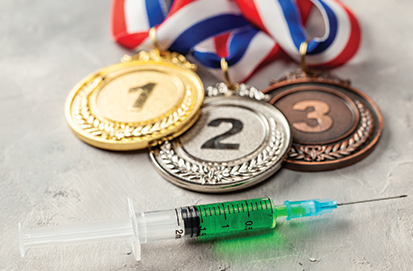Study on the fight against anabolic steroids and human growth hormones in sport within the EU
DG EAC of the European Commission commissioned Ecorys in October 2019 to undertake a study on the fight against anabolic steroids, human growth hormones and prohibited methods in sport within the EU.
The objective of the study was to undertake a mapping of the legislation in place in the EU (both at national and EU level) regarding the possession, production, importation, use, sale, etc. of anabolic steroids, human growth hormones and the use of other prohibited methods like but not limited to blood transfusions. The study also looks at actors involved in the enforcement, investigation, and implementation of the legislation, ranging from sport ministries (doping prevention) to health ministries through to customs, justice bodies and police, among others. Moreover, the study examines the barriers to enforcement of the legislation and puts forward recommendations on how the EU and Member States could better address the problems identified.
Stakeholders were consulted throughout the study in order to gather and verify the information collected and to gain their feedback on our findings and recommendations. Such consultations included scoping interviews with high-level experts in the field, interviews with experts of anti-doping measures and legislation at various DGs and EU agencies (for the EU level research) and with national anti-doping organisations, lawyers, academics, customs officials, police, etc (for the national level research). Ecorys also held an online workshop with high-level experts (e.g., the World Anti-Doping Agency, Europol, the Joint Research Centre (Food Safety and Consumer Protection team) and the Anti-Doping Convention team of the Council of Europe) to gather feedback on the study findings and recommendations proposed. In addition, Ecorys presented the study at the Council of Europe Anti-Doping Convention’s Monitoring Group meeting on 11 June 2021.
Based on the information gathered through the national level mapping exercise, 27 Country Fiches were developed which summarise the information on legislation and practical measures/initiatives in the Member States. Seven Case Studies that provide granular information on the actors and processes involved in the enforcement of legislation, barriers faced and how these were overcome, in addition to best practices regarding the enforcement and implementation of the legislation were also developed. Eight short case studies that demonstrate how legislation is influencing practical initiatives and projects on the ground were also produced and are included in the final report.
The results will be useful for organisations taking part in international operations against doping, including but not limited to law enforcement agencies, sporting bodies, anti-doping bodies, etc. The study will also deepen general knowledge, and foster cooperation with the World Anti-Doping Agency, the Council of Europe and other organisations involved in the fight against doping, in addition to between relevant actors across the Member States.
The final study report is available here

9 August 2021
2 minute read



